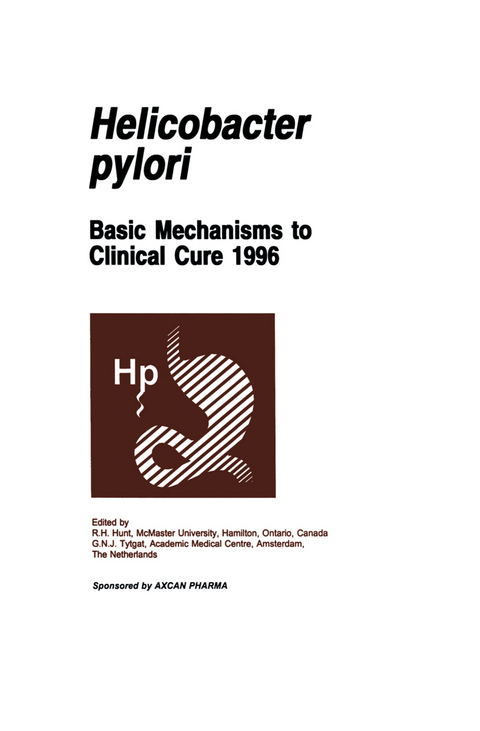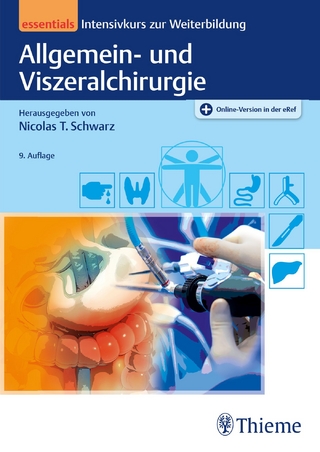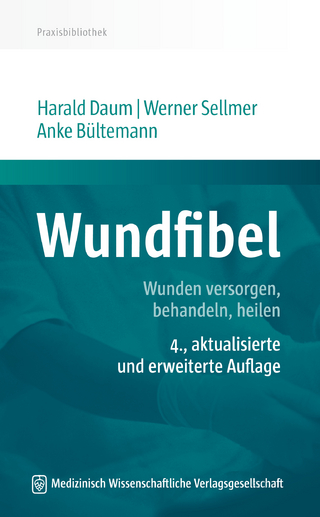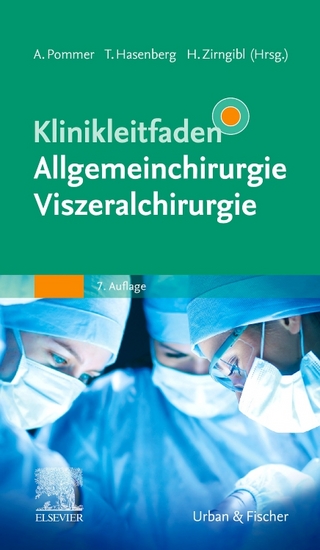
Helicobacter pylori
Springer (Verlag)
978-94-010-7299-1 (ISBN)
1 Mixed gastric infections and infection with other Helicobacter species.- 2 In vivo studies of emergent issues in gastric Helicobacter pathogenesis and epidemiology.- 3 Genetic bases for heterogeneity of Helicobacter pylori.- 4 Mobilis in mobile: unexpected flexibility and quantum leaps in the Helicobacter pylori genome.- 5 Effect of gastric acid on Helicobacter pylori ecology.- 6 Helicobacter pylori and the gastric environment.- 7 P-type ion motive ATPases of Helicobacter pylori.- 8 Which is the most important factor in duodenal ulcer pathogenesis: the strain of Helicobacter pylori or the host?.- 9 The effect of Helicobacter pylori on the surface hydrophobicity and phospholipid composition of the gastric mucosa.- 10 Mediators of inflammation in Helicobacter pylori infection.- 11 Effects of abnormalities of gastrin and somatostatin in Helicobacter pylori infection on acid secretion.- 12 Helicobacter pylori gastritis and gastric acid secretory function — an integrated approach.- 13 Nitric oxide, bacteria and ulcer healing.- 14 Effects of infection with Helicobacter pylori on gastric epithelium.- 15 Is the Th1/Th2 lymphocyte balance upset by Helicobacter pylori infection?.- 16 What determines the vigour of the immune response to Helicobacter pylori?.- 17 Theories of vaccination for Helicobacter pylori.- 18 Vaccines for the treatment and prevention of Helicobacter pylori infection.- 19 The epithelial changes associated with Helicobacter pylori infection: the biology of gastric and intestinal metaplasia.- 20 Cell regulation, differentiation and their sequelae in the Helicobacter pylori inflamed and eradicated stomach.- 21 The gastric lymphomas and the role of Helicobacter pylori in tumour development: have criteria been set for diagnosis?.- 22 Clinical presentation,diagnosis and treatment of Helicobacter pylori-related gastric lymphoma.- 23 Mechanisms of paralysis and apoptosis of the inflammatory cells in Helicobacter pylori infection.- 24 Lessons from the epidemiology of Helicobacter pylori and cancer.- 25 Helicobacter pylori, acid, gastritis, atrophy and progression to cancer: a critical view.- 26 Essential co-factors in gastric carcinogenesis.- 27 Mechanisms of spread of Helicobacter pylori infection.- 28 Whom, how and when to test for Helicobacter pylori infection.- 29 Helicobacter pylori infection in children.- 30 The problem ulcer; bleeding, perforation, Helicobacter pylori-negativity and intractability.- 31 Role of Helicobacter pylori infection in gastro-oesophageal reflux disease (GERD).- 32 Are NSAIDs and Helicobacter pylori separate risk factors?.- 33 Helicobacter pylori and dyspepsia — a conceptual approach.- 34 Aspects of anti-Helicobacter pylori eradication therapy.- 35 What is the relevance of resistance of Helicobacter pylori to antimicrobial agents?.- 36 Treatment of patients with failed eradication — a personal view.- 37 What is the role of the primary care physician in the treatment of Helicobacter pylori?.- 38 Novel therapies for Helicobacter pylori infection.- 39 Economic evaluation of Helicobacter pylori eradication in the management of duodenal ulcer.- 40 Model of Helicobacter pylori treatment and disease outcome: a threshold analysis.- Winning Posters.
| Zusatzinfo | XVIII, 420 p. |
|---|---|
| Verlagsort | Dordrecht |
| Sprache | englisch |
| Maße | 155 x 235 mm |
| Themenwelt | Medizinische Fachgebiete ► Chirurgie ► Viszeralchirurgie |
| Medizinische Fachgebiete ► Innere Medizin ► Gastroenterologie | |
| Studium ► Querschnittsbereiche ► Infektiologie / Immunologie | |
| ISBN-10 | 94-010-7299-X / 940107299X |
| ISBN-13 | 978-94-010-7299-1 / 9789401072991 |
| Zustand | Neuware |
| Informationen gemäß Produktsicherheitsverordnung (GPSR) | |
| Haben Sie eine Frage zum Produkt? |
aus dem Bereich


